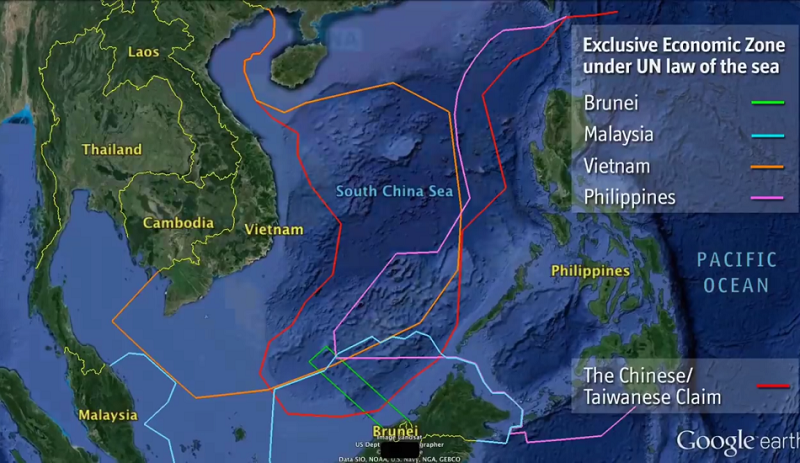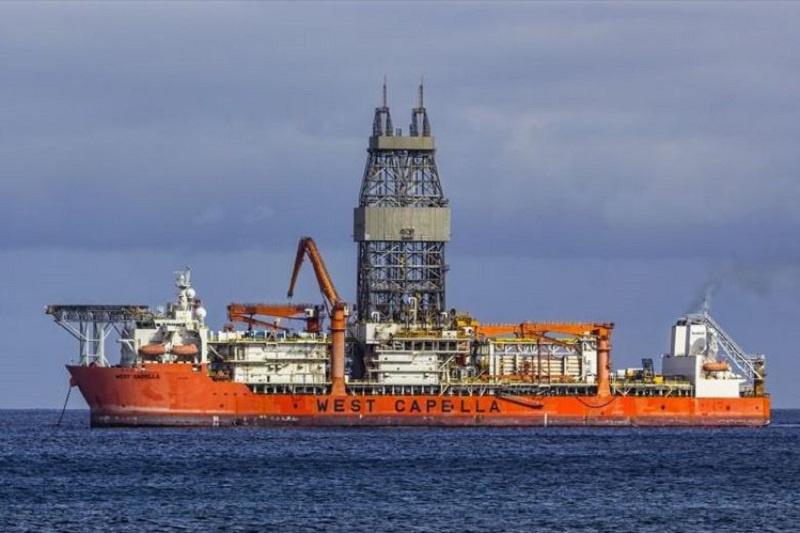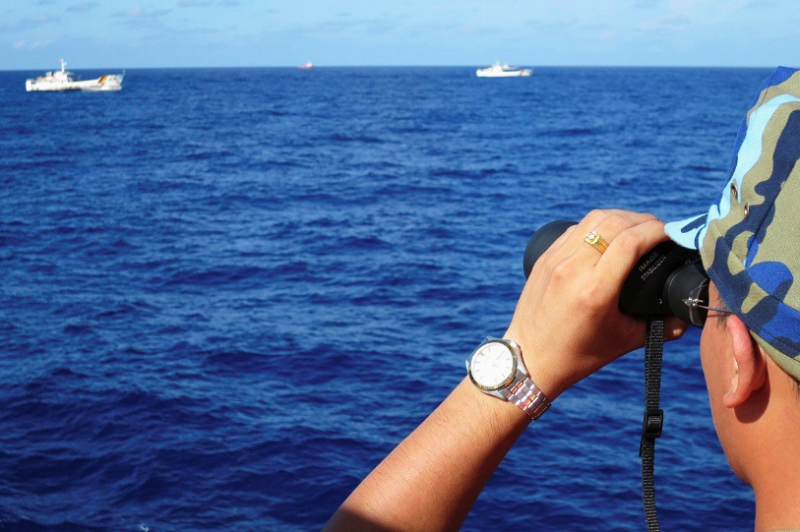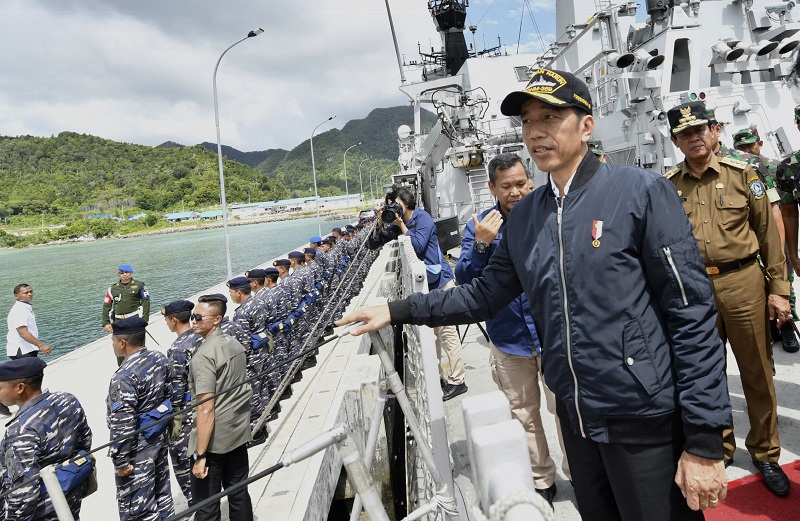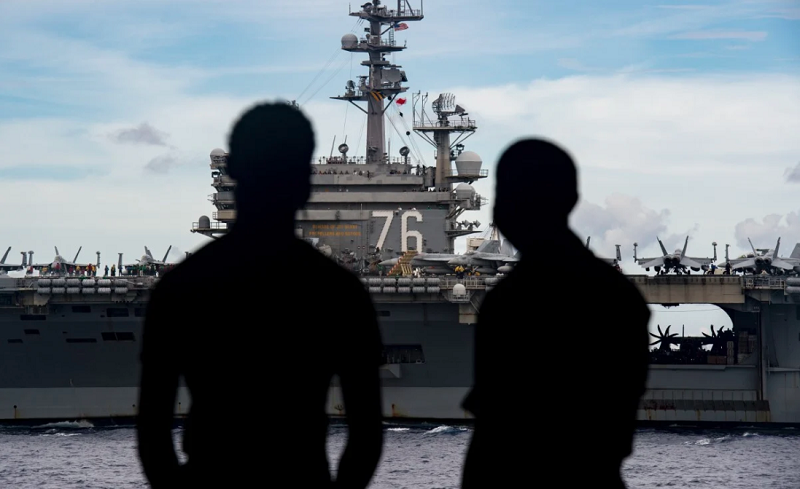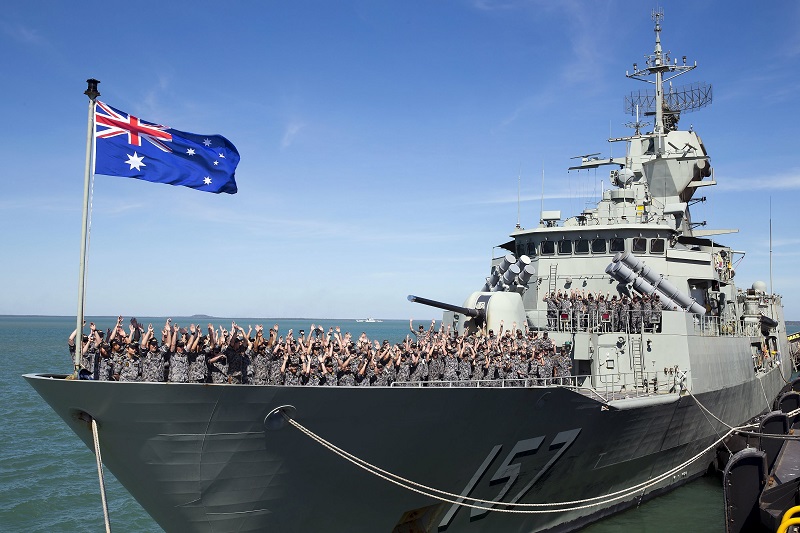South China Sea-related notes verbales might deal huge blow to China’s prestige: Thayer
Notes verbales, unsigned formal diplomatic communication, would largely ruin China’s legal position.
The importance of Malaysia’s notes verbales, and those filed by other states, to the United Nations to protest China’s maritime claims in the South China Sea is that they challenge the legal basis of China’s claims on the basis of an Arbitral Tribunal Award established under UNCLOS Annex VII.
If the UN Commission on the Limits of the Continental Shelf (CLCS) ruled in favour of Malaysia, this would be a huge blow to China’s legal position not to say China’s prestige, Emeritus professor Carl Thayer, a veteran Southeast Asia regional expert, told Hanoitimes in an interview.
| Claimants in South China Sea where more than US$5 trillion in cargo passes through per year. Source: Visiontimes |
What does a note verbale mean?
Prof. Carl Thayer at the University of New South Wales, Canberra said a note verbale is an unsigned formal diplomatic communication. It is how states communicate with each other and with international institutions such as the CLCS. Each institution has its own rules of procedure on how states should communicate their views and how the institution, in this case the CLCS will handle these claims.
The professor went on to say that in the case of the CLCS, a note verbale sets out a state’s official legal position on claims for an extended continental shelf. If a state fails to respond to a claim, this could be taken as evidence that the state acquiesced. In other words, China must submit a counter claim to demonstrate that the issue in question is in dispute. Under the CLCS’ Rules of Procedure, the Commission cannot proceed if there is a dispute between two or more states.
Role of Malaysia in protesting chorus
Malaysian-contracted drillship West Capella in the South China Sea. Photo: Marinetraffic/Manuel Hernandez |
Regarding Malaysia’s July 29, 2020 note verbale to the CLCS, the expert said it is a follow-up to its original partial submission to the CLCS and a Chinese counter-submission, both issued on December 12, 2019.
In December 2019, Malaysia made a submission for an extended continental shelf in the northern part of the South China Sea. This claim was “without prejudice to the question of delimitation of the continental shelf between States with opposite or adjacent coasts…” In other words, Malaysia left the door open to negotiations with its Southeast Asian neighbors in cases where their claims to an extended continental shelf overlapped.
Malaysia’s claim for an extended continental shelf was based on the 2016 Award of the Arbitral Tribunal in the case the Philippines versus China. The Tribunal found that China’s claim to “historic rights” had been superseded by the UNCLOS and that China’s nine-dash line has no basis in international law.
China filed a counter-protest to Malaysia December 2019 note verbale. According to the CLCS Rules of Procedure, Annex 5(a), “In cases where a land or maritime dispute exists, the Commission shall not consider and qualify a submission made by any of the States concerned in the dispute...”
The professor noted “The purpose of Malaysia’s most recent note verbale was to forestall the CLCS from invoking Annex 5(a) and declining to hear Malaysia’s case.” Malaysia’s argued that “China’s claims to the maritime features in the South China Sea has no basis under international law.”
Campaign of “lawfare” waging on
Prof. Thayer has specified the response of related parties and show how the chorus against China’s South China Sea claims means.
He said a general proposition in international law is that international courts and arbitral tribunals will look at state practice following a ruling by an arbitral tribunal to decide on disputes brought before them. The decision by President Duterte of the Philippines to set aside the 2016 Arbitral Tribunal Award and the silence by claimant states undermined international law and left the door open for China to argue its case on the basis of “historic rights”.
“Malaysia’s December 2019 submission to the CLCS broke this legal logjam because it was the first of several submissions by other countries rejecting the legal basis of China’s claims,” the professor said, noting that “it also set in motion a legal tit for tat as China responded to each and every submission.”
| Philippines ruled favor of in 2016 in Scarborough Shoal in lawsuit with China. Photo: Rappler |
The Philippines was the first country to follow Malaysia’s lead. It submitted two notes verbales on March 6, 2020. The first submission supported the 2016 Award of the Arbitral Tribunal and argued that “China’s positions are inconsistent with international law, including the United Nations Convention on the Law of the Sea…” The second submission by the Philippines dealt with an overlap of continental shelves with Malaysia.
| A Vietnamese coastguard ship crew member looks at Chinese coastguard vessels in the South China Sea. Photo: Reuters |
Vietnam submitted three notes verbales. The first note verbale (March 30, 2020) asserted that China’s claims “seriously violate Vietnam’s sovereignty, sovereign rights and jurisdiction in the East Sea (international known as the South China Sea). Vietnam argued that China’s claims in the East Sea exceeded “the limits provided in UNCLOS, including claiming historic rights; these claims are without lawful effect.”
Vietnam’s second notes verbale, dated April 10, 2020, was in response to Malaysia and raised matters relating to the delimitation of continental shelves. Once again Vietnam affirmed it claims to sovereignty and sovereign rights over the Paracel and Spratly islands. Vietnam repeated its claims to sovereignty and sovereign rights over the Paracel and Spratly islands in its third note verbale, also dated April 10, 2020, in response to the Philippines.
| Indonesian President Joko Widodo at Selat Lampa Port, Natuna Islands, Indonesia on Jan 8, 2020. Photo: AP |
Indonesia was the fourth country to file a note verbale with the CLCS on May 26, 2020. Indonesia made three assertions: (1) it was not a party to territorial disputes in the South China Sea, (2) Indonesia’s maritime entitlements were confirmed by the 2016 Arbitral Tribunal Award, and (3) China’s “Nine-Dash line, implying historic rights, claim clearly lacks international legal basis and is tantamount to upset UNCLOS 1982.”
| The American aircraft carrier USS Ronald Reagan on exercises in the South China Sea. Photo: EPA |
The United States was the fifth country to submit a note verbale to the CLCS on June 1, 2020. The US reiterated its previous objections to China’s maritime claims and endorsed the Arbitral Tribunal’s dismissal of China’s claims to “historic rights” as incompatible with UNCLOS. The US further objected to China’s grouping widely dispersed features as a unit in order to claim that the waters enclosed by straight baselines were internal and that the unit could claim maritime entitlements.
| The crew of the Royal Australian Navy Anzac class frigate HMAS Perth. Photo: Australian Defense Force |
Australia was the sixth country to submit a note verbale to the CLCS. Australia provided the most detailed rejection of China’s claims. For example, Australia rejected any Chinese “maritime claims that do not adhere to its [UNCLOS] rules on baselines, maritime zones and classification of features. Australia also rejected to “China’s claims to ‘historic rights’ or ‘maritime rights and interests’ as established in the ‘long course of historical practice’ in the South China Sea.”
Like the United States, Australia declared it was illegal to draw “straight baselines connecting the outermost points of maritime features or ‘island groups’ in the South China Sea…,” claim internal waters inside these straight baselines, or claim maritime zones from submerged features.
Australia was the first country to mention the Paracel Islands. Australia stated it did not accept China’s argument that its sovereignty claims were “widely accepted by the international community” and cited protests by the Philippines and Vietnam to document its objections. Australia also expressed its strong concern over China’s claims to have “continuously and effectively” exercised sovereignty over low-tide elevations.
Finally, Australia disputed China’s claim that it was not bound by the Arbitral Tribunal Award.

